We all have gaps in our pop culture knowledge, those omissions that elicit gasps from our fellow funnybook connoisseurs. For me, those gaps are vast and constitute anything outside of DC Comics proper. I’m on a mission to rectify my comics knowledge shortcomings and to provide a fresh take on classic stories that others have known for years. The comics may be old but my mind is still pure, wrapped in plastic and sitting on the shelf, waiting to be opened. Welcome to Mint Condition!
This time: Art Spiegelman’s award-winning memoir about the Holocaust, his mother’s suicide, and his relationship with his father.
 BACKGROUND
BACKGROUND
The skinny: Maus is Art Spiegelman’s story of his father’s experience as a Jew in 1930’s Poland and later as a prisoner in an Auschwitz concentration camp. In it, the Jews are drawn as mice, Poles as pigs, and Germans as cats. Spiegelman was awarded a Pulitzer Prize in 1992 for Maus, the first graphic novel to be recognized so.
Issues read: I read a hardcover collection called The Complete Maus that (you guessed it) contains the entirety of the story that was published over an eleven year period. See below for a breakdown of what’s included. Hardcover collection by Pantheon Books.
Published by: Art Spiegelman originally self-published chapters of Maus in Raw magazine, a comics anthology that was created and edited by him and his wife Françoise Mouly. The two took a very hands-on approach, having a printing press installed in their Manhattan loft and adding touches to each copy by hand. As the operation began to scale up, later issues of Raw were published by Penguin Books. The story was eventually collected by Pantheon Books in two volumes, and then again as the one complete volume I referenced above.
Publication dates: The first chapter of Maus appeared in Raw magazine in 1980. Chapters were added roughly once a year for the next 11 years. The first six chapters were collected by Pantheon in 1986 as a volume subtitled My Father Bleeds History. Pantheon published a collection of the final five chapters in 1991, subtitled And Here My Troubles Began.
Creators: Art Spiegelman wrote and drew the book, based on conversations he had with his father about his experiences as a Jew in German-occupied Poland during World War II. Spiegelman appears as a character in the story, and depicts some of these interview sessions with his father.
My previous experience: It’s a book that pops up frequently in best-of lists. As I was scouring for candidates for this column, it seemed a no-brainer.
 FIRST IMPRESSIONS
FIRST IMPRESSIONS
Significance: The fact that a comic won a Pulitzer Prize is incredible, but this is quite the comic. Maus was on the forefront of claiming comics as an adult form of media, in a time where comics were ruled by the superhero genre. The first collected volume made a large splash when it came out in 1986, with critical and media attention galore. It was sold in regular bookstores, and may have caused the creation of the graphic novel section that we see in stores today.
Story: Maus reeks of authenticity. It doesn’t come across as a carefully crafted tale meant to take the reader on a journey to a particular destination, but rather an honest portrayal of life’s everyday (and extraordinary) hardships. Some of the scenes in Maus are emotionally difficult and lack resolution, which puts this work more in the category of memoir than anything else. There are really two different stories being told here: one about the author’s father’s recollection of the events surrounding the Holocaust, and another about Spiegelman’s own interactions with his father as he is eliciting the story from him. Art visits his aging father periodically to ask questions about what Poland was like for a Jew in the 1940’s and to chronicle a truthful account of life in the German concentration camps.
Art Spiegelman’s father Vladek is a difficult man. He has hundreds of thousands of dollars in the bank, but lives as if he is a pauper, stealing paper towels from bathrooms and refusing himself and his wife simple indulgences. He hoards wooden matchsticks as if they were treasure, fumes about money being wasted in any small way, and is aggressively stubborn about trivial household matters. Living with Vladek is near impossible and we see the struggles that those close to him go through to try to love him. Spiegelman wants to dismiss these character flaws as a result of living through the horrors of Auschwitz, but he knows that explanation doesn’t completely hold up. There are many other survivors who went through it (and worse) and didn’t become so unbearable, and he suspects that his father already had some of these personality quirks even before the World War began. But who can pretend to know what such horrors can do to a person?
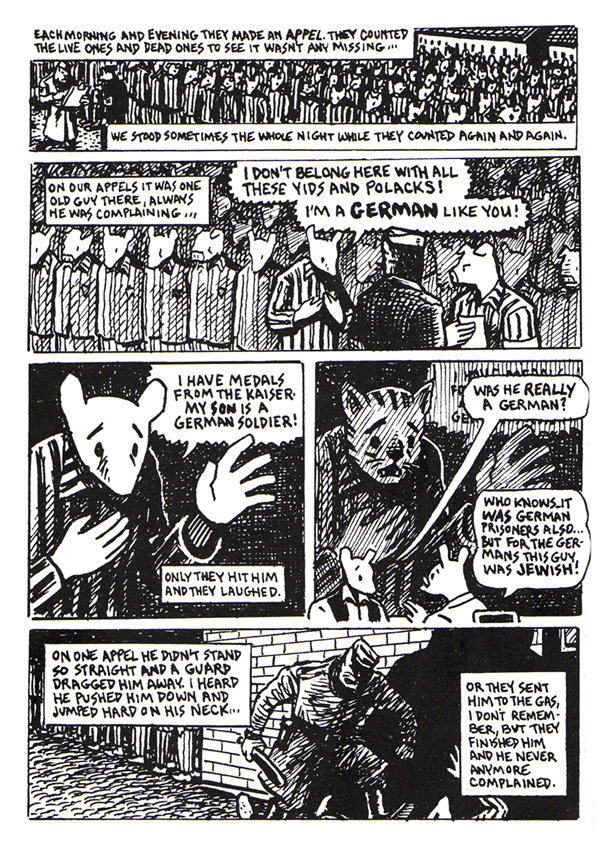
As a historical recounting of the war, the details contained in Maus are ghastly. It’s one thing to read in a textbook that a million people were killed in the Auschwitz concentration camps. But to hear a personal depiction of the day-to-day fight to stay alive during this nightmare brings with it a sharp awakening. Vladek recalls being separated from family members into two lines, one headed to the left to be housed, the other going to the right and death. He and others came up with risky maneuvers to avoid the daily census counts and guard interactions that were certain to end their lives. He saw friends turn traitor, for either survival or money. Starvation, sickness, and torture were a daily reality for years. There is no easy way to look at the monstrous acts that were committed against the Jewish people, and this book doesn’t attempt to sugarcoat them.
Maus reads a bit meta-textually. In a strange way the book is about the book since Spiegelman included scenes where he himself was creating or thinking about the book to be written. He wonders if he should portray his wife as a frog (because she is French) or a mouse (because she converted to Judaism). He encourages himself to portray his father as accurately as possible, while worrying that he will be reinforcing Jewish stereotypes. Much of Maus plays like a behind-the-scenes reel, helping us to understand what it must have been like to capture such a difficult topic.
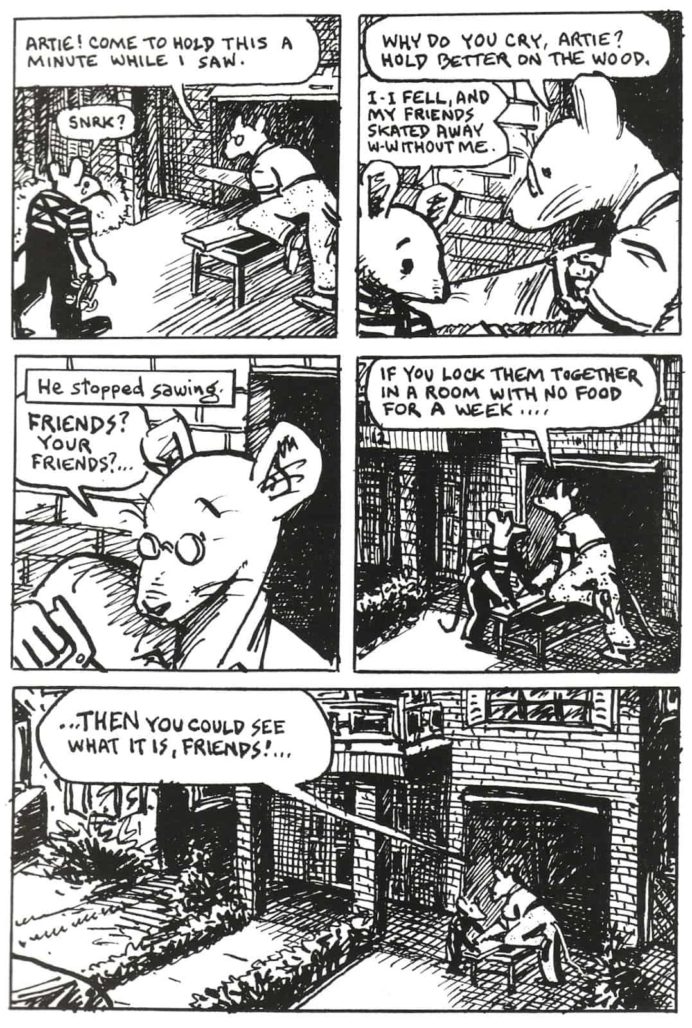
Because each ethnic group is drawn as a different animal, we can easily recognize where character loyalties lie in a situation. The pigs sometimes help the mice but also there’s incentive for them to betray the mice. This does so much to help the reader to digest the story that it’s impossible to imagine this book working well with human characters. It also gets across the feeling of tension between the groups. Many of us feel most comfortable around people who look, act, and think like us. All of the animals in a particular group look pretty much the same in Maus — the reader’s only clues are often the clothes or expressions or dialogue.
The book is drawn in stark black and white, no grey tones. It’s a wordy book, and almost every panel has words in it. Most of the book is dialogue between characters, so the art serves mostly to set the scene and support the words. Spiegelman keeps it interesting by never repeating the same panel twice. Even in a lengthy conversation the characters remain in motion. Instead of just sitting there while talking, the mouse will take off his glasses, squint at them, rub them with a cloth, and then put them back on. The drawings are so much fun that no scene feels too long. I can’t get enough of the cute animals.
 VERDICT
VERDICT
New reader accessibility: You’ll learn a lot from this book. Spiegelman has found a way to connect all of us to an event that is becoming harder for us to remember clearly. At the same time, he speaks to a daily struggle that will be recognizable by all.
Desire to read more: This book excited a desire for me to know more. I’ve never seen a more engrossing way to learn about the political landscape in 1940’s Europe or about the experience of Jews in Poland. To hear a (more or less) firsthand account of life inside the concentration camps told plainly like this is a treasure. We need to know history so we’re not doomed to repeat it, right?
Final Thoughts: In the end, the impression that Maus leaves is one of unanswerable questions. How to make sense of tragedy on this scale? How to bridge the divide between parents and children, or husbands and wives? How can we remain open to the unfamiliar and understand another’s experiences? What do we do when there are no easy answers or ways to bring closure?
Suggestions for future columns? Leave them in the comments. And check out the full Mint Condition archive here!


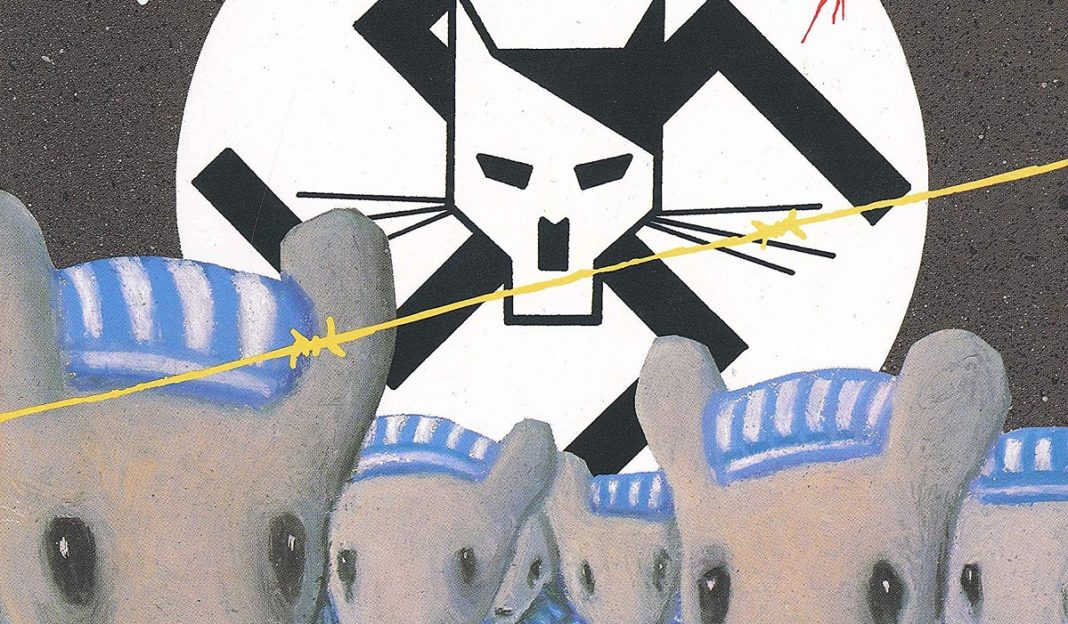
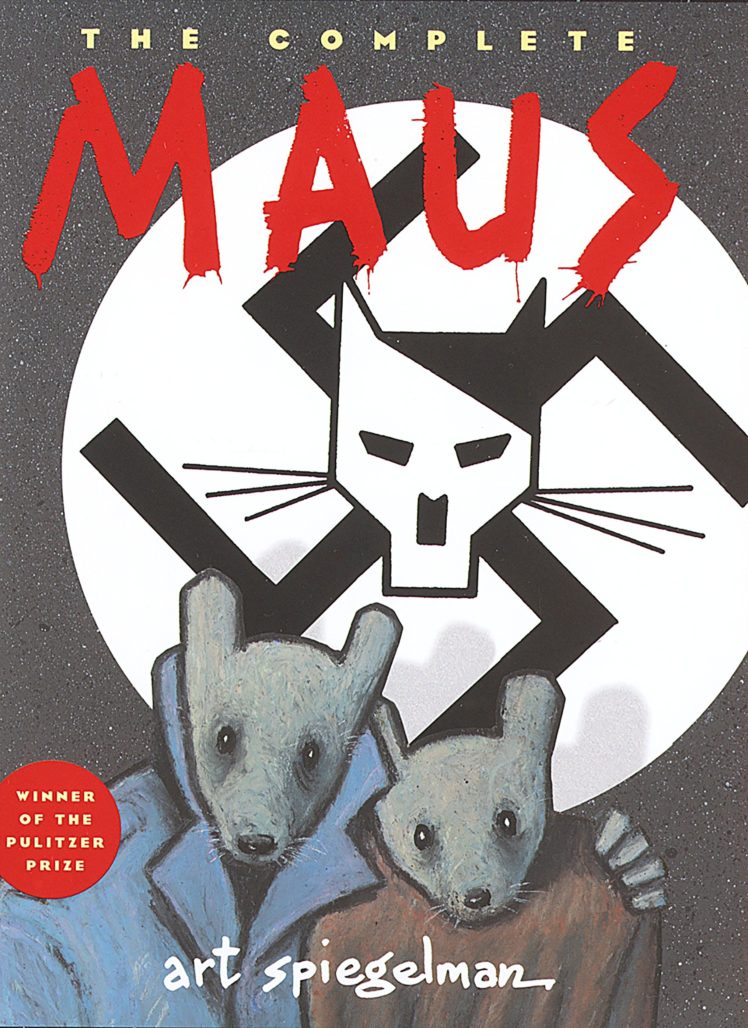 BACKGROUND
BACKGROUND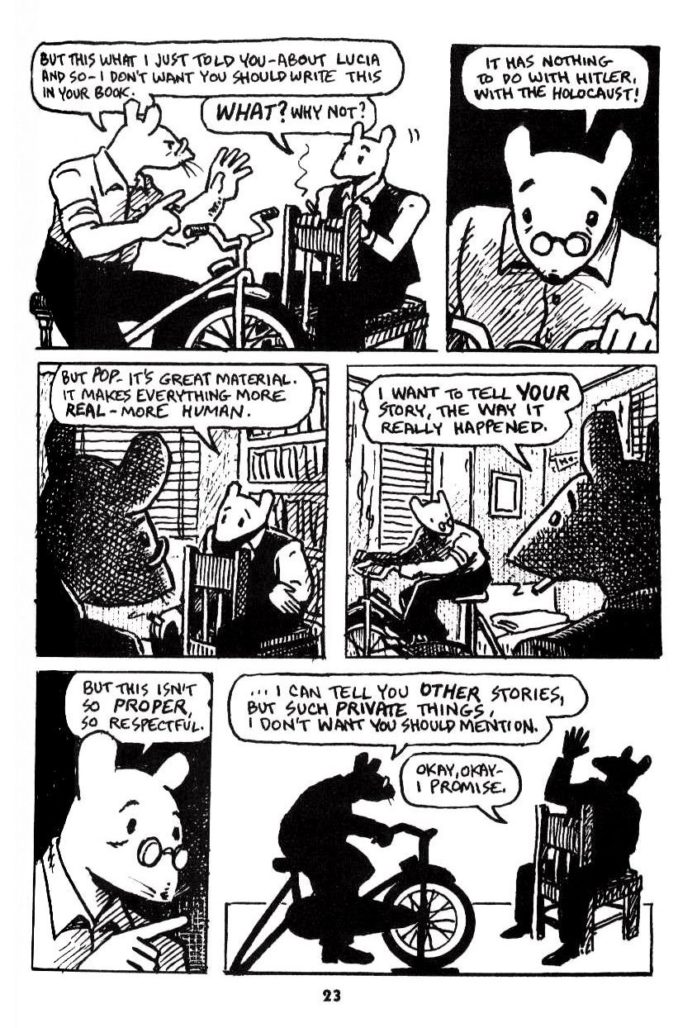 FIRST IMPRESSIONS
FIRST IMPRESSIONS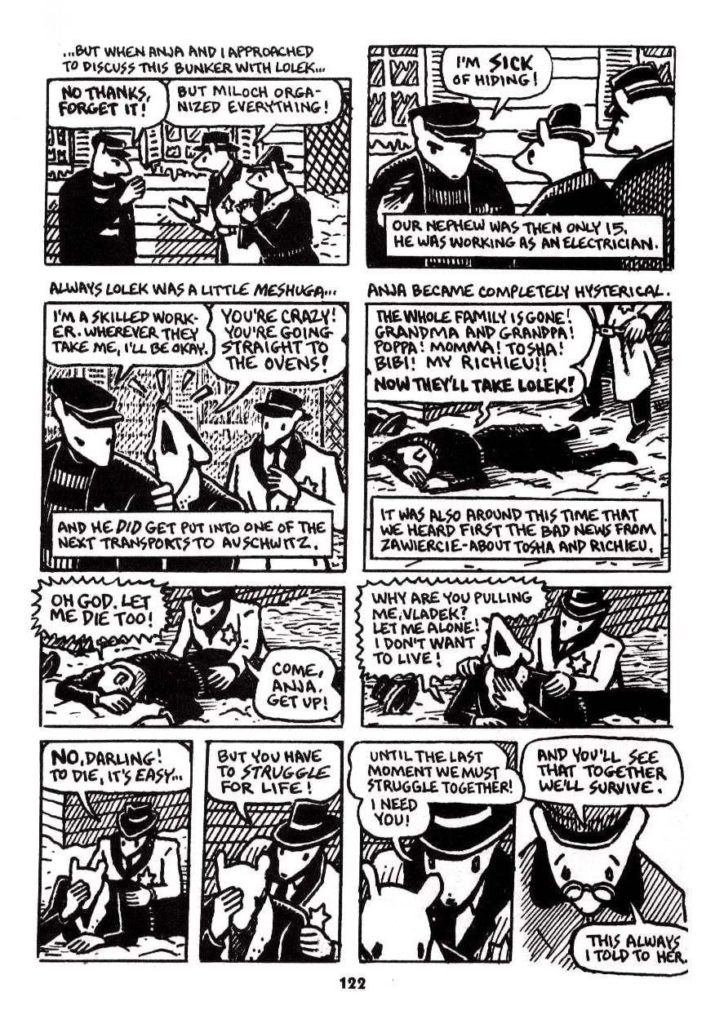 VERDICT
VERDICT



